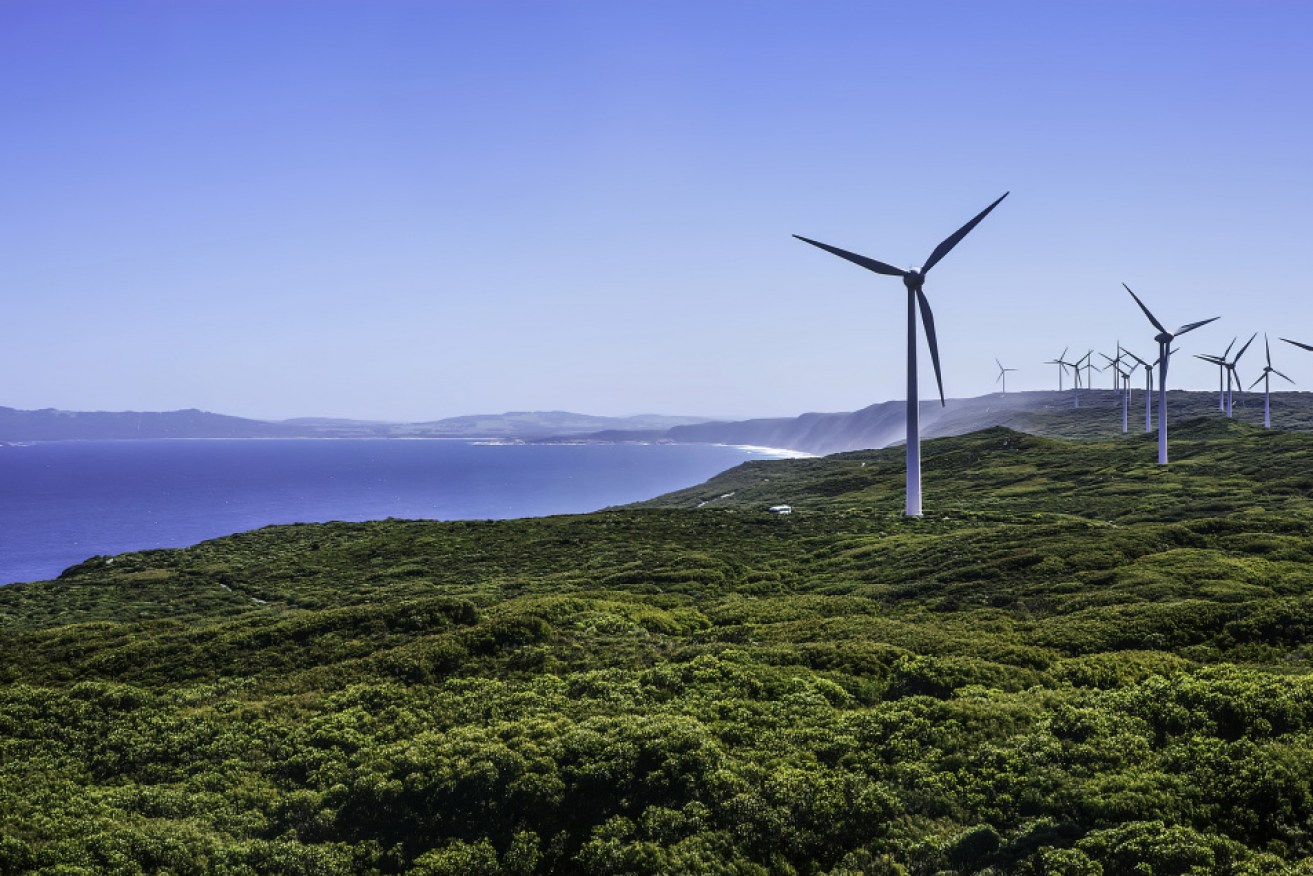Road to net zero: The very real financial consequences of failure at Glasgow


Australia could create more than 250,000 jobs by 2070 by ramping up its climate action, according to Deloitte Access Economics. Photo: Getty
Ask Deputy Prime Minister Barnaby Joyce what the road to net zero means for Australia and he’ll tell you everyday Australians will be forced to pay the price.
It’s a well-worn talking point for Australian politicians, from former prime minister Tony Abbott to Energy Minister Angus Taylor.
The claim is that strong climate action will be the death of affordable energy, regional livelihoods and even the Australian way of life.
But as Prime Minister Scott Morrison dithers over whether to attend the Glasgow climate summit in Scotland next month, advocates are urging him to consider the far greater cost of failing to rapidly reduce our emissions.
It comes as Mr Morrison prepares to announce a target of net-zero emissions by 2050 ahead of the summit, a target that analysts say would still leave Australia behind many other nations.
Matt Ogge, an adviser at progressive think tank The Australia Institute, said Australia faces billions of dollars in economic damage without a more ambitious 2030 goal.
The UK has set a target of driving emissions 68 per cent below 1990 levels by 2030.
“Glasgow isn’t about 2050 targets; the whole game is 2030,” he said.
“It’s about reducing emissions quickly within the next decade.
“2050 is worse than irrelevant. It’s a distraction allowing people to do what they want for 30 years.”
‘Australia has a lot at stake’
The debate over the costs of inaction saw Treasurer Josh Frydenberg use a speech to the Australian Industry Group last month to warn households of a potential rise in mortgage rates unless Australia gets its act together on climate.
“Australia has a lot at stake,” he said.
“We cannot run the risk that markets falsely assume we are not transitioning in line with the rest of the world.”
Separate analysis by Deloitte Access Economists (DAE) estimates that the Australian economy could lose $3.4 trillion worth of GDP in today’s dollars by 2070 if climate change is unchecked.
More than 880,000 jobs could be lost in key industries like mining, construction and tourism, DAE found.
About 30 per cent of Australia’s workforce is exposed to climate risks.
These costs dwarf the effects of COVID-19 and should be front of mind for Mr Morrison heading into Glasgow, Climate Council chief economist Nicki Hutley told The New Daily.
Ms Hutley said instead of losing money Australia could reap billions of dollars a year by moving exports from fossil fuels to renewables.
But time is running out as other nations have raced ahead of Australia.
“Australia has come so slowly to the party that the rest of the world has moved on,” Ms Hutley said.
“If we don’t grab the opportunities earlier, we will lose a first-mover advantage.”
Climate costs already mounting
The costs of the climate crisis are mounting.
Ms Hutley said a 1 per cent rise in borrowing costs is already on the cards as investors around the world start factoring in climate crisis risks.
These include natural disasters like the Black Summer bushfires last January, which cost the economy an estimated $100 billion in just a few months.
“It impacted cultural production, worker productivity, supply chains, damage to critical infrastructure – the list goes on,” Ms Hutley said.
“It’s not just extreme weather events, either. In construction you stop work at a certain temperature – that’s going to happen more frequently.”

The Black Summer bushfires cost Australia an estimated $100 billion. Photo: AAP
Opponents to serious climate action often claim we will face these costs even if Australia doesn’t achieve net zero, because nations like China are responsible for far higher amounts of annual carbon emissions.
But Mr Ogge said this argument discounts Australia’s role as one of the world’s largest exporters of fossil fuels and that shirking climate action undermines our ability to push other nations to reduce their emissions.
As TND reported on Monday, Australia is not just failing to lead on the world stage but is instead seen as a climate pariah ahead of Glasgow.
“The reality is Australia is a huge emitter,” Mr Ogge said.
“Every Australian emits about four times the world average [in carbon].”
Australia losing green opportunities
Failing to adopt stronger climate action is also a massive missed opportunity for the Australian economy, Ms Hutley warned.
The market for renewable energy is expected to grow from an estimated $US613 billion ($845 billion) industry in 2020 to $US1.1 trillion ($1.5 trillion) by 2027.
Ms Hutley said Australia can capture a sizeable share of that market.
“We are one of the sunniest and windiest countries in the world,” she said.
“It is a cheap and sustainable form of energy and we can export it.”
DAE has estimated Australia could reap $680 billion in economic activity and generate more than 250,000 jobs by 2070 by working with other countries to limit global average warming to 1.5 degrees Celsius above pre-industrial temperatures.
“The reality for Australia is that we stand to lose the most from unanswered climate change, but also stand to gain significantly from action,” DAE has said.
“In a global economy where emissions-intensive energy is replaced by energy from renewables, Australia can be a global source of secure and reliable renewable power.
“Countries such as Japan, South Korea and Germany have already come to Australia asking for us to export renewable hydrogen.”
Other articles in this series include an analysis of the political challenges facing Scott Morrison, and a review of what other countries are saying about Australia’s climate change record.









